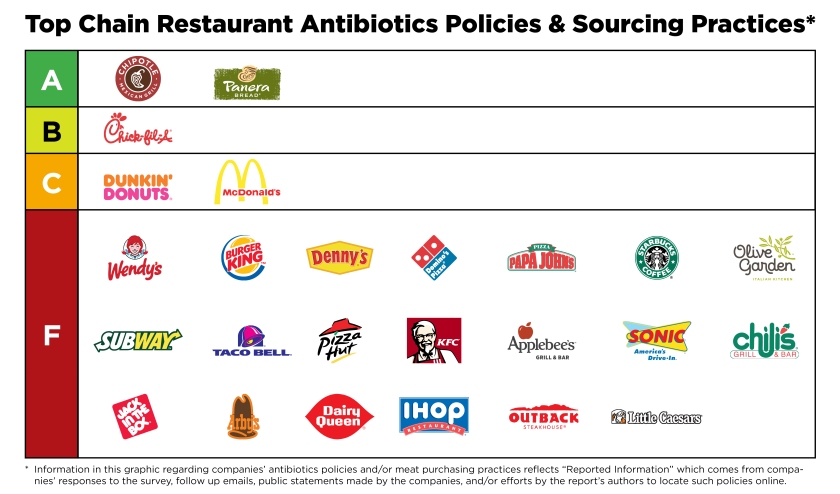Majority of fast food restaurants have yet to convert the meat used in their products to antibiotic-free. Fast food chains hold a significant role in the meat industry; They buy and receive all of their meat from large scale meat companies which are then used for the food products that they sell to their customers. For years, many people didn’t have much of a problem with these companies. However, with the amount of controversy in the meat industry dealing with the use of antibiotics in livestock animals over recent years, it is debatable whether or not these fast food corporations should be going antibiotic-free and only buying from the meat companies that don’t implement the use of antibiotics in their animals.
Healthy meat consumers believe that fast food companies should convert to antibiotic-free meat because it will be overall better for their health while fast food companies don’t want to go antibiotic-free because they feel it is unnecessary and would only cause them to lose profits.

Image from AARP
A study report conducted by ConsumersUnion in 2015 called “Chain Reaction: How Top Restaurants Rate on Reducing use of Antibiotics in Their Meat Supply” was able to find out that of the top 25 fast food restaurant chains that they had reviewed, only 2 of the chains, Chipotle and Panera Bread, were able to confirm that they raise all of their meat without the use of antibiotics, whereas many other restaurant chains such as McDonald’s and Taco Bell just to name a few, had admitted to using some form of antibiotics in their animals or refused to even answer the survey about their meat.
Jill Manata, one of the corporate vice presidents for McDonald’s who advocates for the change in switching to antibiotic-free meat, had stated in a June 2015 article from Trust magazine saying, “Our customers want food they feel good about eating and that they know is sourced responsibly”. Supporters of this initiative want fast food companies to go antibiotic-free because it will allow transparency of knowing where the meat they are consuming is coming from and whether or not it is safe to eat. With many food borne illnesses that have already been contracted from meat consumption, consumers are starting to be more wary of the meat they are eating. Meat consumers feel that this change will bring a greater positive change in their diet as well as their health.
Fast food companies on the other hand refuse to make this change right away because they believe doing so will have no significant change in health or the economy. Published in Crain’s, a weekly newspaper business based in Chicago, from October of last year, an article about the difficulty of fast food companies going antibiotic-free stated, “In many cases, they’re [McDonalds, Chik-Fil-A, etc] being forced to get [meat] supplies from the other side of the globe or wait for years for suppliers to catch up to the types of proteins consumers want today”. With many consumers’ high demands for natural and antibiotic-free meat, there is not enough being produced from antibiotic-free meat companies to sell to these fast food chains and turning to other suppliers from across the globe would mean losing profits for these businesses. Along with that, this initiative would create great tension between antibiotic-free meat companies and meat companies that still use antibiotics in their animals.
There are still many questions that need to be addressed dealing with this issue of whether or not fast food companies should go antibiotic-free with their meat products. Would there be a significant change in consumer health if fast food companies go antibiotic-free or would it make no difference? What would the fate of meat companies that still use antibiotics be if all fast food companies switched over to purchasing from antibiotic-free meat companies instead? Do fast food companies care more about making profits over the health of their customers?